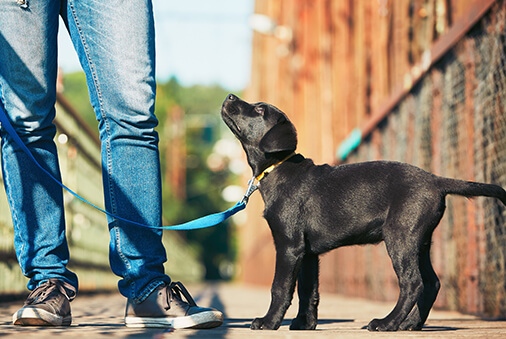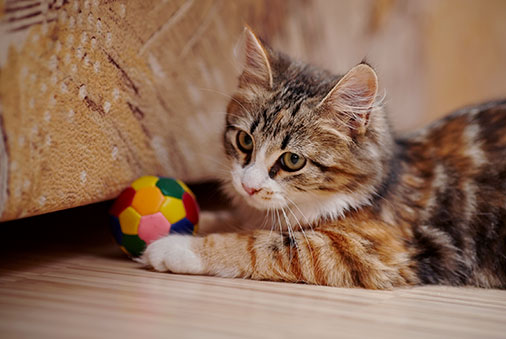Whether you are sending kids back to school, returning to the office, or adjusting to a new job (and commute), the only constant in life is change. Through the years, the comfortable, reliable routines our pets crave are bound to hit a few bumps in the road. You may have days or weeks to prepare for a change, but these tips will help you navigate the journey ahead, so you can create a smooth and stress-free transition for everyone.
Ease Pets into the New Routine
Pets need to (re)learn what it’s like to be left alone while you’re at work or no one is home. Practice this new schedule, leaving the house first for a few minutes at a time and gradually extending the outings to an hour or more. You should also begin to reestablish existing routines. If you normally take your dog out for a morning walk or brush your cat before work, start doing this at the new designated time every day.
Introduce Mealtime
If you’ve grown accustomed to feeding your pet on a flexible schedule and doling out treats on demand, now is the time to get back on track. Slowly reintroduce regular feeding times you can maintain, like before you leave and when you get home from work.
Pets Get Bored, Too
If your pets will be home alone, give them interactive toys and activities they can do on their own. Studies have shown that music can help dogs relax, so leave on some low volume soft rock, reggae, or classical music. For cats, streaming videos of birds or fish on your TV can enchant them for hours.
An After-School Snack
Right after getting home from school, kids are wired to shed their backpacks and let gravity do the rest. Their lunch leftovers and other items are of great interest to dogs, who have little trouble getting inside. It’s no coincidence that each fall, the American Veterinary Medical Association sees a surge in poisonings related to items found in lunchboxes and backpacks, including toxic foods, gum, medication, and more. Keep pets safe by creating a backpack drop zone they can’t access.
Signs of Stress & Anxiety
In the first few days and weeks of the new routine, keep an eye out for any behavioral changes. More obvious signs of stress in dogs may include chewing, scratching doors, or whining and barking. For cats, loud meowing, irritation of the skin caused by overgrooming or excessive licking, and urinating outside the litter box can be signs of stress and separation anxiety.
Comfort Your Dog
If you previously used a gate or crate with your dog when away from home, ease back into that routine while you’re still around during the day. Higher energy dogs need regular exercise, so resume a schedule that includes a dog walker or a doggy day care in advance of the transition.
Comfort Your Cat
Create a safe spot with a soft blanket, a few favorite toys, and a sunbeam. If you happen to leave a new cardboard box or a few paper bags out on the kitchen floor, that’s curious enough to keep your cat engaged for quite some time and encourage independent play.
If your pet displays stressed behaviors for more than a week, or if the symptoms become severe, consult your veterinarian right away, as some calming medications or supplements can help.







